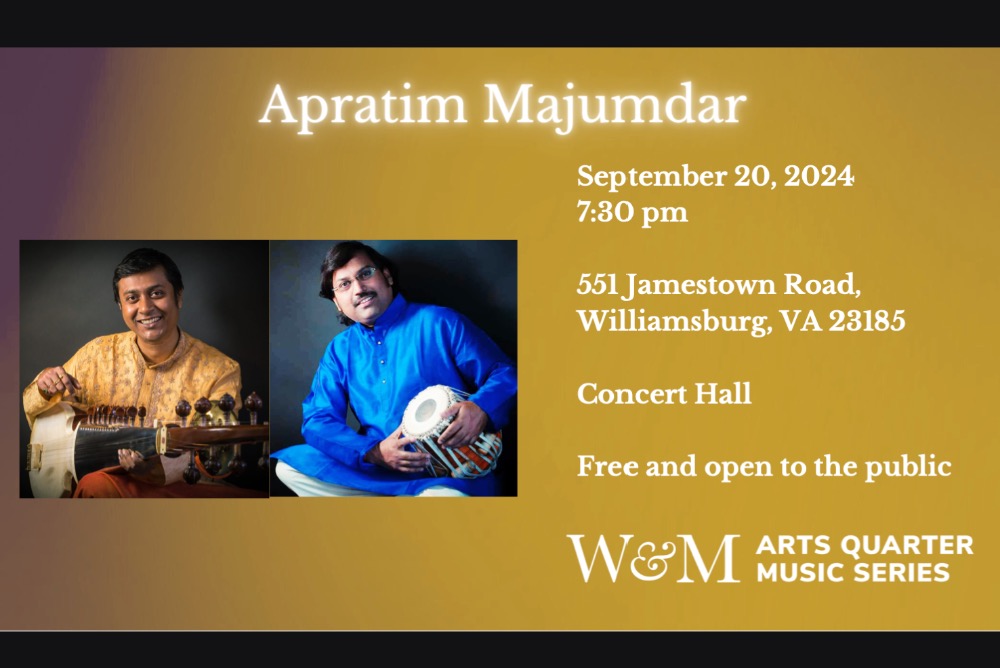Reves Center for International Studies Events
W&M Arts Quarter Music Series: Apratim Majumdar
Access & Features
- Open to the public
- Ticketed event

To reserve your seat please follow this ticket link: http://wm.universitytickets.com/w/
Apratim was born (on June 14, 1978) and raised in Kolkata (India). He was initiated to vocal music at the age of five under the guidance of his mother. At the age of nine he preferred to switch over to instrumental music - Sarod, a 25 string fretless ethnic Indian musical instrument of Senia Maihar Gharana.
For next two decades he was tutored and groomed by Prof. Rabin Ghosh, disciple of Ustad Alauddin Khan. During this period he also received training for about two years from Shri Partho Sarothy disciple of Ustad Dhyanesh Khan and Bharatratna Pt. Ravi Shankar.
Apratim’s entire training in music for over 29 years is in Guru-sishya-parampara style in the lineage of Senia Maihar Gharana. His studies in music is still continuing uninterruptedly. Presently he is under guidance of Dr. Pradip Kumar Chakraborty, one of the senior most disciples of Bharatratna Pt. Ravi Shankar.
He is “Sangeet Bhaskar” (Master in Music) from Pracheen Kalakendra, Chandigarh.
“Sur Mani” title was conferred upon him by Sur Singar Akademi (Mumbai).
Apratim is an empanelled artist of Eastern Zonal Cultural Centre (EZCC) and Indian Council for Cultural Relations (ICCR).
On November 1, 2015 the New York State Assembly honoured Apratim with "New York State Assembly Award".
On February 5th, 2016 the Salt Lake Cultural Association (Kolkata) cofered JADU BHATTA AWARD upon him.
In the process of his prolonged dedicated training for over 29 years in traditional Dhrupadee Veenkar Style of Senia Maihar Gharana he has developed a distinguished playing style of his own.
Deeply steeped into tradition Apratim's renditions are totally self improvised and meditative in nature. His captivating virtuosity, sparkling imagination interwoven with prosodic progression, aesthetically unfolds true color of the raga. His metrical waves of sensitive melodic phrases and his intensity in performance create the “ambience of charm and beauty in a short span of time."
Sponsored by: Music Department
